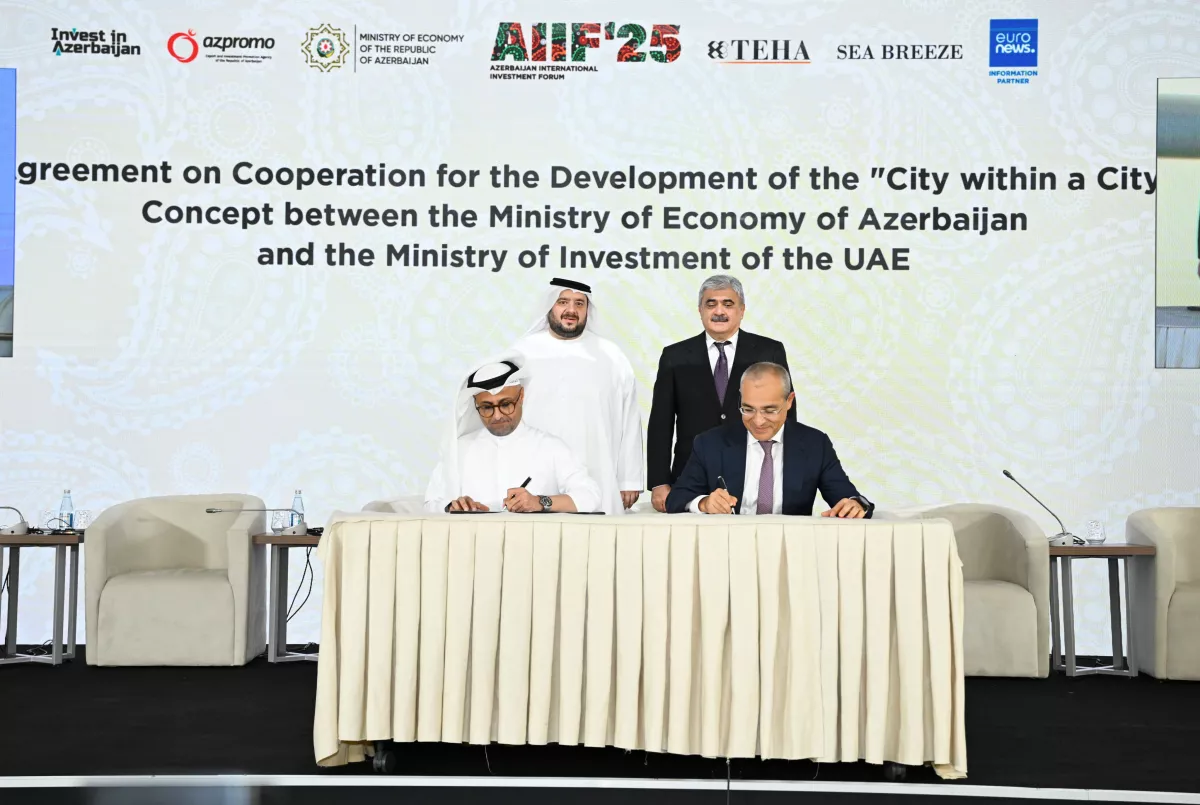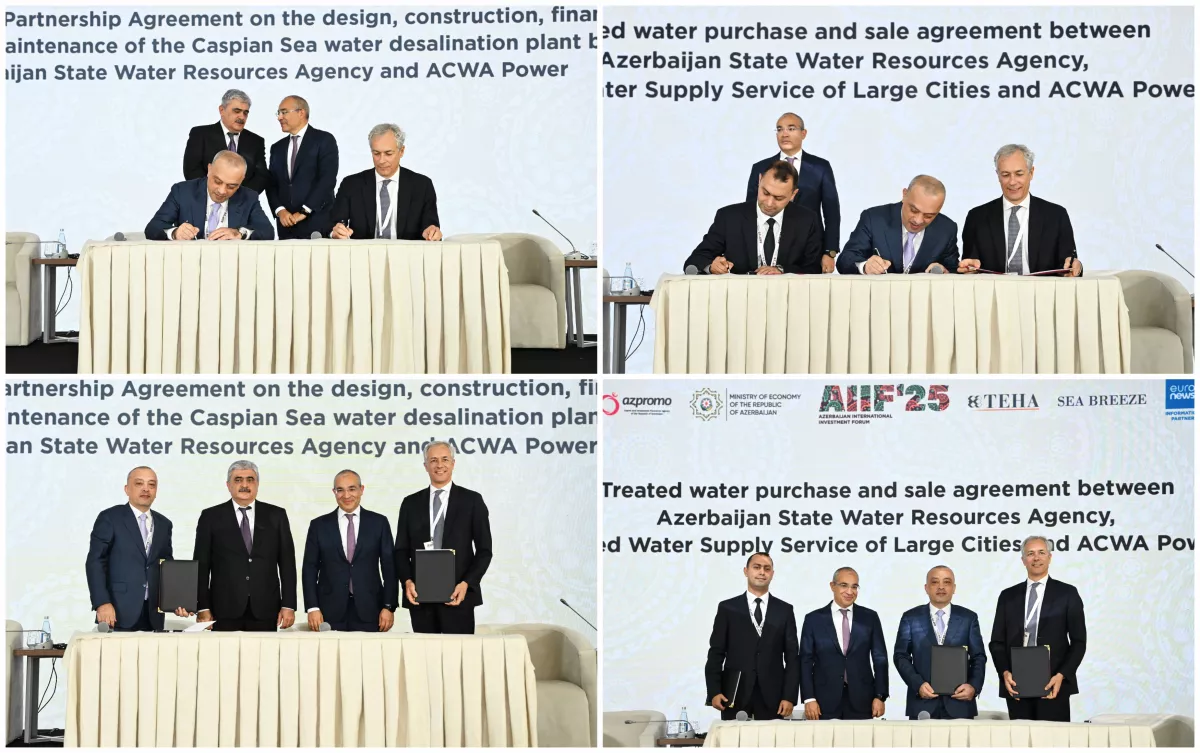Azerbaijan opens a new investment era The importance of the Baku forum
The first Azerbaijan International Investment Forum, which opened today in Baku, is more than a calendar event—it marks a major milestone in the country’s economic history. In his opening address, President Ilham Aliyev emphasised that Azerbaijan is entering a new phase of transformation, driven by a comprehensive model of sustainable growth in which the non-oil sector, logistics, digitalisation, and international partnerships play a central role.
Highlighting the country’s impressive achievements, the President noted that over the past two decades, $344.4 billion has been invested in Azerbaijan’s economy, of which $213.2 billion went into the non-oil sector. Today, the non-oil sector accounts for 68% of the economy, and between 2021 and 2024, it grew at an average rate of 6.7% per year, with non-oil exports nearly doubling over six years. These figures underscore Baku’s steady efforts to diversify its economy, reduce reliance on oil revenues, and create new hubs for capital attraction.
At the same time, Azerbaijan has strengthened its macroeconomic stability: budget revenues in 2025 are 2.4 times higher than in 2017, foreign exchange reserves have nearly doubled, and external debt has fallen to 6.5% of GDP—one of the strongest levels globally.

Symbolically, several multi-billion-dollar agreements were signed at the forum, shaping the future today. The most ambitious of these is the “City within a City” project, being developed in partnership with Modon Holding from the United Arab Emirates. The project envisions a modern, multifunctional district around Lake Boyukshor, incorporating medical centres, educational institutions, hotels, and commercial and business zones.
Essentially, it represents the creation of a new urban development cluster. While exact investment figures have not yet been disclosed, it is already evident that the project involves billions of dollars, making it comparable to the largest urban initiatives in the Middle East.
Importantly, the project goes beyond conventional development: it reflects a new philosophy of urban planning, integrating economy, ecology, and comfort into a single, cohesive system.

Equally significant was the agreement with ACWA Power to build a seawater desalination plant, with direct foreign investment exceeding $400 million. For Azerbaijan, which faces challenges in the sustainable management of water resources, this is not merely an industrial facility but a strategic investment in resilience. The technologies to be implemented will enhance the country’s water security and form part of a broader “green” agenda.

The forum also highlighted the importance of the digital economy and cross-border e-commerce. Discussions between Economy Minister Mikayil Jabbarov and Çetin Çağlayan, President of Trendyol Group, highlighted ongoing collaboration in e-commerce and logistics. This sector appears particularly promising: Azerbaijan has the potential to become a key digital hub in the region, connecting Eastern and Western markets not only through physical infrastructure but also via electronic platforms.
All of these initiatives are being implemented against the backdrop of a modern industrial base already established in the country: nine industrial parks and four industrial districts hosting 171 registered enterprises. Over 6.9 billion manats have been invested in their development, creating around 11,000 jobs. While this figure is significant on its own, more importantly, it demonstrates that Azerbaijan is cultivating an environment where the private sector plays a central role. Its share of the economy stands at 81.4%, reflecting a well-balanced approach between state regulation and business initiative.

The geoeconomic aspect is also noteworthy. Azerbaijan’s location makes it a natural transit hub, and with the opening of the Zangezur Corridor, the country’s importance on the Eurasian transport map will only increase. Investments in logistics and digital infrastructure are not merely local projects—they represent a strategic choice that strengthens Azerbaijan’s role in the international trade system.
Thus, the forum in Baku served as a clear demonstration that Azerbaijan is advancing systematically and strategically. The agreements signed are not mere formalities but concrete investment packages that will transform the country’s landscape. The “City within a City” project could become a symbol of a new approach to urban development; the seawater desalination plant represents the rational management of water resources; and the collaboration in e-commerce and digital solutions signals a transition to a future-oriented economy. Together, these initiatives paint the picture of a nation that not only maintains its energy role but is also emerging as a centre of innovation, sustainable development, and international cooperation.








